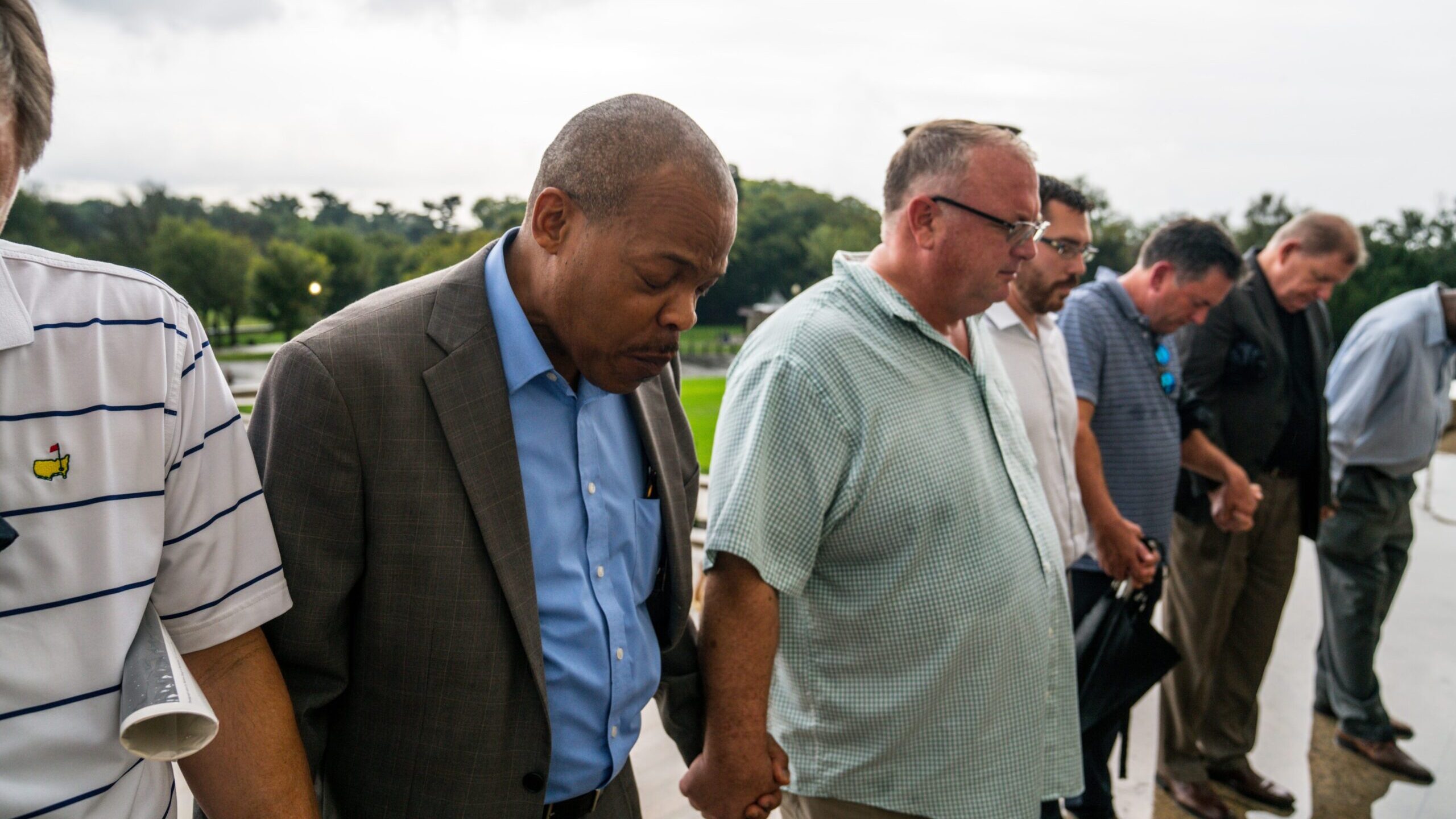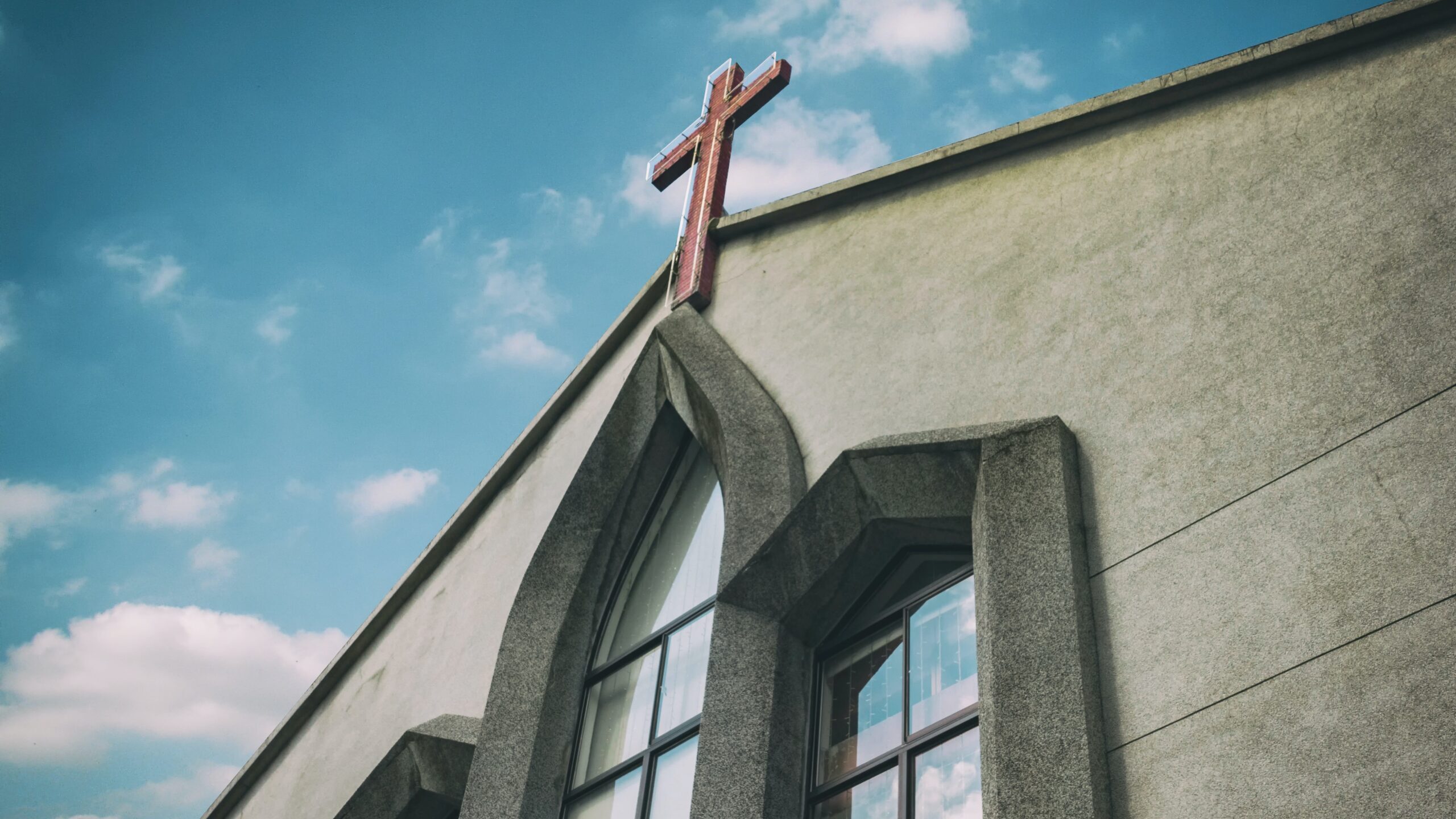Posted on Dec 19, 2022 in Mission Moment, Uncategorized |
I recently attended PLI Leadership’s Discipleship to Missional Community (D2MC) training and was asked this question: “How do you view the world?” That’s not something any of us probably think about apart from being specifically asked! The presenter went on to describe two common perspectives that Christians typically adopt and proposed a third one that might better reflect the life of a disciple of Jesus.
GOD ⬅️ YOU ➡️ WORLD
We are tempted to understand the world simply as the forces that oppose God. God is on one side, the world is on the other, and the Christian is in the middle. With this worldview, you find yourself in the tension of either turning towards God or towards the world. This is the whole devil on one shoulder and angel on the other sort of picture! This perspective leads Christians to see the world as dangerous and develop a separatist culture to better reflect the life that we believe God is calling us to live. Unfortunately, this approach makes it difficult to share Jesus with the world.
Posted on Nov 3, 2022 in Mission Moment, Uncategorized |
Since the earliest days of the church, followers of Jesus have struggled with division and disunity, so it does not come as a surprise when we encounter it in the church today. It is common for me to visit a church and hear members speak with envy about what the other churches in their community are doing. And I get it: I have spent countless hours strategizing how my church could gain in “market share” so to speak! Too often we view our church in competition with others.
It is easy to see how this disunity and division must grieve God, especially the attitudes that seek gains for one congregation at the expense of another! But I also see that God may be at work in a mysterious way through our earthly divisions. I profess a Lutheran faith because I believe it to be faithful and true as I read scripture. But I also know faithful Methodists, Baptists, Catholics, Anglicans, and others who would earnestly say the same thing about their faith. And I do not think that it is God’s desire that we lock ourselves in a room together until we have hashed out an agreed upon faith so that there would be just one church on earth! Instead, the diversity of the church might be a part of God’s plan to reach the masses.
Posted on Oct 3, 2022 in Mission Moment, Uncategorized |
“Everything is bigger in Texas.” “Bigger is better.” “Do you want to SuperSize that?”
We live in a size-obsessed culture in so many ways. The assumption is often made that bigger organizations are always more able to do and accomplish what smaller organizations simply cannot. While there are certainly examples of this, it isn’t always the case. The primary difference is scale: larger organizations seem to accomplish more due to the scale at which they can effect change. Smaller organizations, however, typically can make a greater proportional impact on a smaller scale. The problem is that smaller organizations frequently assume that they cannot make much of a difference and regularly do not even attempt to do so.
Why does this matter or the church? We believe God is calling us to “Multiply Disciples and Churches” as Lutheran Congregations in Mission for Christ here in Texas. As I travel about the Texas District and have conversations with pastors and church leaders, I encounter a common assumption that church planting is an activity for either church bodies or mega churches. As an association of congregations, we are committed to congregational mission. The most effective model for planting new churches is when they are parented by one or more congregations that are actively involved in the new mission effort. Since the typical congregation in Texas has a worship attendance of around 65 or 70 people, most believe that they are far too small to do such a big thing as to plant a church.
Posted on Sep 13, 2022 in Mission Moment, Uncategorized |
As we celebrate the Resurrection of our Lord Jesus in this season of Easter, we are reminded once again of God’s power to bring the dead to new life! And God is alive! “Christ is Risen!” we declare with all enthusiasm and confident faith. This is Good News! I believe, trust, and celebrate it! But the troubling question I often struggle with in the face of the resurrection reality is why so many churches look closer to death rather than reflecting new life in Christ?
Across protestant denominations in the United States in the past two decades, 2 to 3 percent of congregations close their doors for good in any given year. If anything, this trend has likely accelerated due to the pandemic. Here in LCMC Texas, we have seen four churches hold their final worship services in my seven years in this position. Across LCMC a 2-3% closure rate would equal approximately 20 congregations annually that cease to exist. This reality may be masked as our total number of congregations slowly increase due to churches joining from other denominations and new churches being planted to numerically overcome these losses.
About a year ago I was diagnosed with type 2 diabetes. Years of struggling with weight and healthy physical habits have resulted in this present reality for me. Like the church, the statistics for diabetics are not great. I was referred to a doctor who has helped me to confront the reality of my unhealth yet did not leave me without hope. Instead, he pointed me in the direction of some lifestyle changes that, if I make them a priority, will greatly increase the likelihood that I live a full and healthy life.
Posted on May 26, 2022 in Mission Moment, Uncategorized |
I have the distinct privilege of teaching the Church Planting & Revitalization course for Harvest Workers, our
online ministry training program. Recently, my first two students successfully completed the course. It was an
absolute joy to teach them, mostly because I had a front row seat to watch them grow!
Every Harvest Workers course has a list of expected demonstrated competencies that we hope to observe in
all students by the end of each class. For my class, there are several specific areas that I have listed. As I
supported these first students through the course, I discovered that there is a single, over-arching hope that
summarizes all that I desire for my students: that each begins to think like a missionary.
Missionaries the world over strive to bring the life-giving Gospel of Jesus Christ to people who have no idea
that it is at all necessary or relevant for their lives. Some may have never heard of Jesus before while others
may be familiar but have either rejected the faith or have yet to respond. Either way, missionaries need to
figure out how they can meaningfully connect and communicate with those outside of faith in Jesus Christ.
Posted on May 10, 2022 in Uncategorized |
As we celebrate the Resurrection of our Lord Jesus in this season of Easter, we are reminded once again of God’s power to bring the dead to new life! And God is alive! “Christ is Risen!” we declare with all enthusiasm and confident faith. This is Good News! I believe, trust, and celebrate it! But the troubling question I often struggle with in the face of the resurrection reality is why so many churches look closer to death rather than reflecting new life in Christ?
Across protestant denominations in the United States in the past two decades, 2 to 3 percent of congregations close their doors for good in any given year. If anything, this trend has likely accelerated due to the pandemic. Here in LCMC Texas, we have seen four churches hold their final worship services in my seven years in this position. Across LCMC a 2-3% closure rate would equal approximately 20 congregations annually that cease to exist. This reality may be masked as our total number of congregations slowly increase due to churches joining from other denominations and new churches being planted to numerically overcome these losses.
Posted on Mar 19, 2022 in Mission Moment, Uncategorized |
“Then an expert in the law stood up to test him, saying, ‘Teacher, what must I do to inherit eternal life?’ ‘What is written in the law?’ he asked him. ‘How do you read it?’ He answered, ‘Love the Lord your God with all your heart, with all your soul, with all your strength, and with all your mind,’ and ‘your neighbor as yourself.’ ‘You’ve answered correctly,’ he told him. ‘Do this and you will live.’ But wanting to justify himself, he asked Jesus, ‘And who is my neighbor?’” – Luke 10:25-29
If you’ve spent much time at all in the church, chances are high you are quite familiar with this text. This conversation between a lawyer and Jesus serves as the introduction to what is perhaps Jesus’ most infamous parable: The Good
Read more…
Posted on Feb 16, 2022 in Mission Moment, Uncategorized |
“Come to me, all of you who are weary and burdened, and I will give you rest. Take up my yoke and learn from me, because I am lowly and humble in heart, and you will find rest for your souls. For my yoke is easy and my burden is light.” – Matthew 11:28-30
I recently returned to my day-to-day duties after 2 months off on sabbatical. This was my first sabbatical in my 20 years of ordained ministry and a much-needed rest. I am forever grateful to the District for providing this season of rest and renewal. I knew I needed a sabbatical… but I needed it more than I knew!
Posted on Jan 13, 2022 in Mission Moment, Uncategorized |

Note: This guest post is by David Mayer. David is the interim pastor of Faith Lutheran Church in Seguin, Texas, and teaches New Testament for Harvest Workers.
Every year there are more pastors retiring. So, where do new pastors come from? Where are the gardens in which future pastoral candidates are grown? Apart from one candidate who I helped nurture and mentor, I admit that I have acted as if pastors “just keep coming,” as if there were an automatic stream of people eagerly filling the ranks left empty by retiring pastors. Is this how congregations think? Is this how pastors join the ranks, always from somewhere else, but never from any place in particular?
Posted on Dec 17, 2021 in Mission Moment, Uncategorized |
Note: This guest post is by Kari Malinak. Kari serves as the Associate Pastor of Living Word Lutheran Church in Grapevine. Kari was elected to the District Council in 2020.
Happy New Year! Well, as I write this, happy new liturgical year! With Advent, the Christian Church begins a new cycle of seasons and liturgy. Advent is a special season filled with hopeful anticipation, expectation, and joy knowing the celebration of Christ’s birth is only a handful of weeks away. Advent is also a penitential season in which we reflect on the need of God entering this sinful world and our own sinful nature. In our modern world, though, we can lose the meaning in a hectic holiday season. So, writing this now, I hope we can appreciate Advent and Christmas in a calmer time.
Read more…













